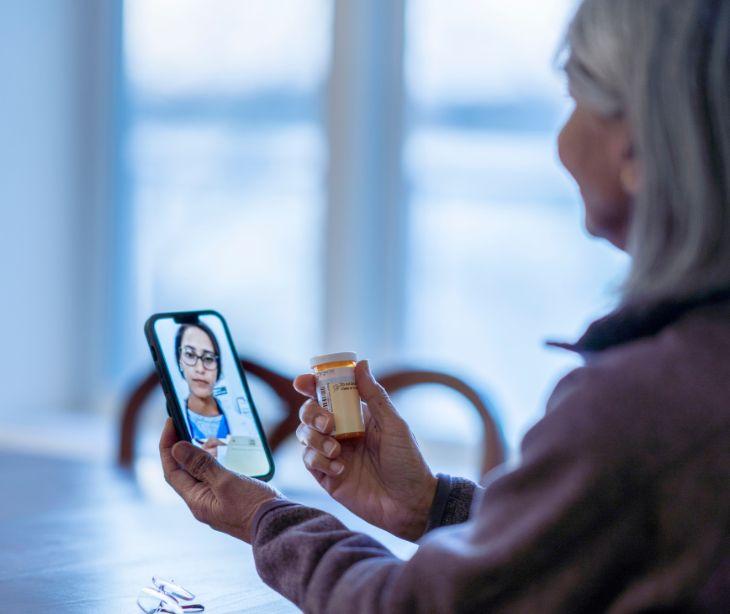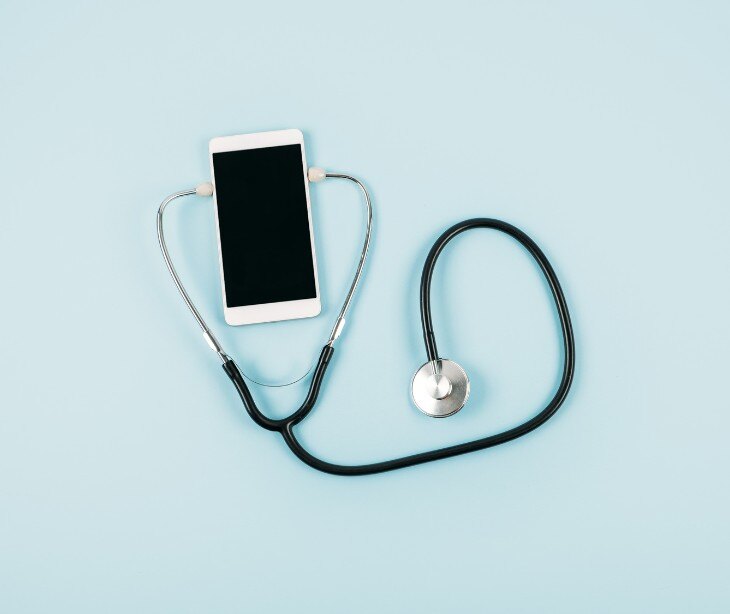6 min read
HIPAA compliant email in mobile clinics and pop-up health services
Farah Amod
April 10, 2025

Mobile clinics serve as access points for communities with limited healthcare infrastructure. According to the Mobile Health Map project at Harvard Medical School, 1,376 mobile clinics operate across the United States, collectively returning $1.1 billion in value through services provided. These services typically offer primary care, dental services, immunizations, screenings, and chronic disease management.
During crises, such as natural disasters or public health emergencies, mobile clinics act as frontline response units. A study published in the International Journal for Equity in Health noted, "Mobile clinics reduce barriers to health care including transportation, time, system complexity, and trust."
Despite their impact, mobile clinics face communication hurdles due to the transient nature of their work. Staff must coordinate care while on the move, manage referrals, follow up with patients, and ensure medical records are shared securely across systems. As a study in ScienceDirect points out, “some negative aspects need to be addressed. These included concerns about privacy.” This is where HIPAA compliant email becomes indispensable.
Understanding mobile clinics and pop-up health services
According to Tulane University’s School of Public Health, “Despite efforts to improve access to quality health care, the United States faces increasing costs and high rates of chronic disease. Worse, vulnerable groups — including low-income people, those who belong to racial and ethnic minority groups, and rural communities — continue to face disproportionately negative health outcomes. To combat these disparities, health care must increase access to affordable, equitable, culturally sensitive health services.”
Mobile health clinics are one way to help close that gap by bringing care directly to underserved populations. These clinics come in many forms—buses, vans, RVs, and trailers—and can operate independently or as part of an existing healthcare system. As the same source explains, “Mobile health clinics provide a wide range of services to people who may not otherwise receive care, including urgent care, primary care, and preventive health support.”
Communication challenges in mobile healthcare settings
Effective communication is required for the success of mobile and pop-up healthcare services. However, these non-traditional environments often face unique barriers that can compromise care delivery, especially for vulnerable populations.
Limited infrastructure
According to a 2024 article in Nature's Journal of Perinatology, “There are pronounced disparities in home broadband service access by race/ethnicity, age, geographic location, education, and income… progress on this objective is declining.” These gaps in digital access directly impact the ability of mobile health units to maintain reliable communication, particularly in remote or underserved areas where broadband coverage is sparse.
Data security concerns
The same article notes, “Text messaging is not considered a secure form of communication… some mobile devices used to access text messages may not have access controls in place, such as strong passwords or facial recognition, making it easier for a person other than the intended recipient to intercept the transmitted information.” In mobile clinics, where healthcare teams rely on digital tools to coordinate care and share patient data, ensuring HIPAA compliant communication becomes a logistical and legal challenge.
Coordination difficulties
“We recently encountered challenges arising from US privacy laws with using text-based digital health interventions while developing a randomized clinical trial to improve maternal and neonatal outcomes in marginalized communities,” the authors explain. The barriers created by privacy regulations—though well-intentioned—can hinder real-time communication among dispersed healthcare providers, volunteers, and administrative staff, ultimately affecting patient outcomes.
Benefits of HIPAA compliant email in mobile and pop-up care
Improved care coordination
Mobile clinics are uniquely positioned to reach underserved communities, but ensuring continuity of care remains a challenge once the van pulls away. According to the International Journal for Equity in Health, mobile clinics “reduce barriers to health care including transportation, time, system complexity, and trust,” and serve “vulnerable populations in both urban and rural areas who may otherwise fall through the cracks of the healthcare system.” HIPAA compliant email offers a consistent, secure way to extend that care by maintaining communication, scheduling follow-ups, and sharing results, even after the clinic has moved on.
Efficient patient follow-up
In mobile or pop-up settings, patients may not have stable phone access or may live far from permanent clinics. Email becomes a valuable tool to keep them engaged. A study published in JMIR mHealth and uHealth found that “periodic prompts were effective in encouraging participants to revisit the app,” and that those who received email reminders “used the app more consistently and demonstrated higher retention over the course of the study.” This suggests that even basic email outreach can play a powerful role in sustaining patient attention and compliance.
Enhanced patient trust and engagement
The asynchronous nature of email communication is particularly suited for mobile care environments, where patients may experience inconsistent access to technology or be navigating unstable routines. As noted in the Journal of Health Communication, “young people appreciated asynchronous messaging options because they could take time to think and respond, reducing pressure and improving their sense of autonomy.” Email empowers patients to absorb instructions, ask questions, and follow up on their own terms, fostering trust and long-term engagement.
Streamlined documentation and recordkeeping
Mobile care providers often juggle fast-paced environments and limited infrastructure. HIPAA compliant email supports streamlined documentation by allowing providers to send visit summaries, lab results, or care plans that can be integrated into a patient’s electronic health record. According to the Office of the National Coordinator for Health Information Technology, “Secure messaging systems allow clinicians to send and receive patient information in a timely manner, document communications directly in the EHR, and ensure continuity of care—even outside traditional clinical environments.”
Support for multilingual and culturally sensitive communication
Diverse populations often face language barriers in traditional care settings—but email offers flexibility in delivering personalized content. As outlined in BMC Health Services Research, the “co-development of a linguistic and culturally tailored tele-retinopathy intervention led to improved understanding, stronger patient-provider communication, and greater comfort among patients with limited English proficiency.” With HIPAA compliant email, clinics can share translated documents, educational videos, or visual aids that meet patients where they are, linguistically and culturally.
Best practices for using HIPAA compliant messaging in mobile healthcare
To use secure messaging effectively in mobile settings, healthcare teams should adopt the following strategies:
- Use mobile-optimized, HIPAA compliant email platforms: Tools like Paubox offer encrypted email specifically designed for healthcare, with mobile compatibility, automatic encryption, and integration with EHR systems.
- Train staff on privacy protocols in mobile settings: All team members should understand how to handle devices securely, recognize phishing risks, log out of email accounts when not in use, and avoid using personal or unsecured email for patient communication.
- Use consent-based email workflows: HIPAA allows providers to communicate with patients by email if consent is obtained. Mobile clinics should gather this consent during intake and clearly explain how email will be used to support care.
- Ensure device security and connectivity: Mobile units should be equipped with password-protected, encrypted devices and secure mobile email apps. Reliable data connections—or offline access options—help ensure continuity of care in low-connectivity areas.
- Establish communication protocols for emergencies: In disaster response or urgent care scenarios, pre-set email protocols and secure contact lists can help mobile teams coordinate quickly and safely with hospitals, local health departments, or emergency services.
Our solution
HIPAA compliant email streamlines communication in mobile clinics and pop-up health services, ensuring patients receive updates securely and efficiently even in fast-moving, resource-limited settings. Providers can share visit summaries, follow-up instructions, lab results, and appointment reminders while safeguarding protected health information.
Built-in encryption and access controls protect sensitive data without adding friction for patients or clinicians. With solutions like Paubox Email Suite, encrypted messages are delivered straight to patients’ inboxes, with no portals, and no extra logins. Additional layers of protection, such as phishing and spoofing prevention, help secure communication against cyber threats and unauthorized access.
Seamless integration with EHRs, Google Workspace, and Microsoft 365 supports continuity of care, even when teams are mobile. HIPAA compliant email ensures rapid, secure coordination between outreach teams, local partners, and patients, boosting care access, improving engagement, and supporting compliance with minimal disruption to clinical workflows.
Learn more: HIPAA Compliant Email: The Definitive Guide
FAQs
What happens if a mobile clinic sends a non-encrypted email by mistake?
If protected health information (PHI) is shared via non-encrypted email, it could trigger a reportable HIPAA violation. The organization may need to conduct a breach risk assessment and notify the affected patient, HHS, and possibly the media depending on the scale. Having protocols in place to prevent this, such as using email platforms that automatically encrypt every message, can mitigate this risk.
How does HIPAA compliant email compare to texting for mobile health teams?
Texting is better for urgent, real-time updates, while email is more suitable for detailed follow-ups, attachments, and documentation. Both serve a purpose, but email offers more flexibility for sharing care plans, appointment summaries, and educational materials while keeping everything archived for reference.
Can HIPAA compliant email be used to coordinate care between mobile units and brick-and-mortar clinics?
Yes. Secure email platforms can bridge mobile and traditional care settings by enabling shared communication threads, referrals, and record handoffs, this helps ensure continuity when a patient transitions from a mobile unit to a hospital or permanent clinic.
What should mobile clinics do if a patient doesn't have an email address?
If a patient doesn't have email access, clinics should offer alternative communication methods such as printed visit summaries, follow-up calls, or secure texting (with consent). Staff should document the patient’s preferred method of contact and tailor outreach accordingly.
Are HIPAA compliant emails admissible in legal or clinical audits?
Yes. Secure email platforms often provide audit logs and message tracking that can serve as documentation for clinical decision-making, patient communication, and regulatory audits. These records can help demonstrate compliance and support continuity of care across decentralized settings
Subscribe to Paubox Weekly
Every Friday we'll bring you the most important news from Paubox. Our aim is to make you smarter, faster.



